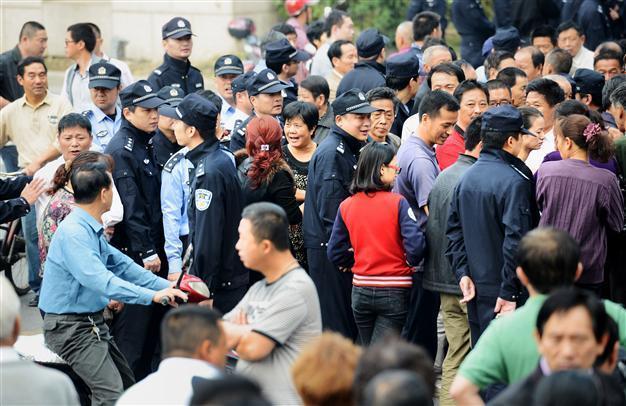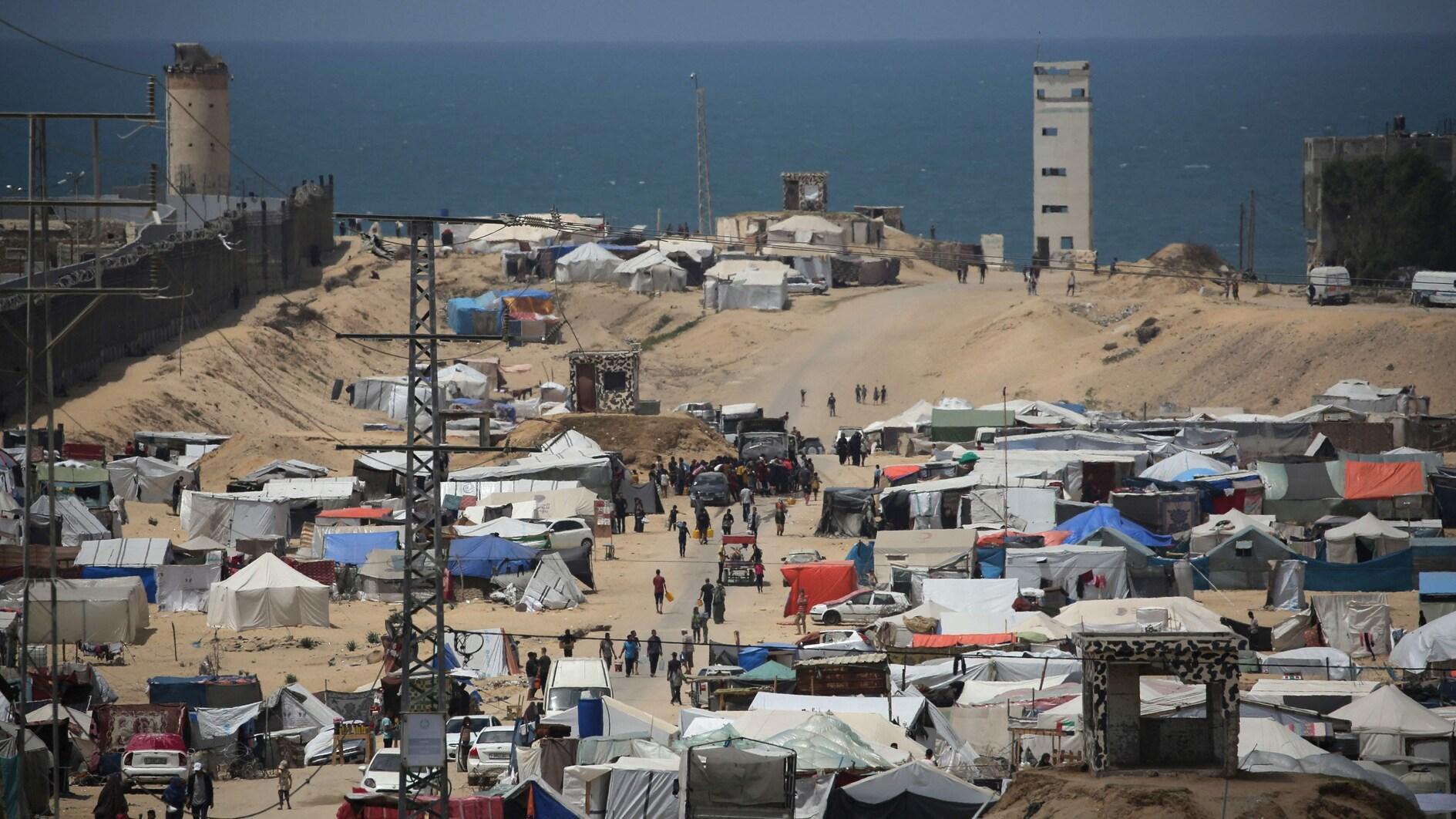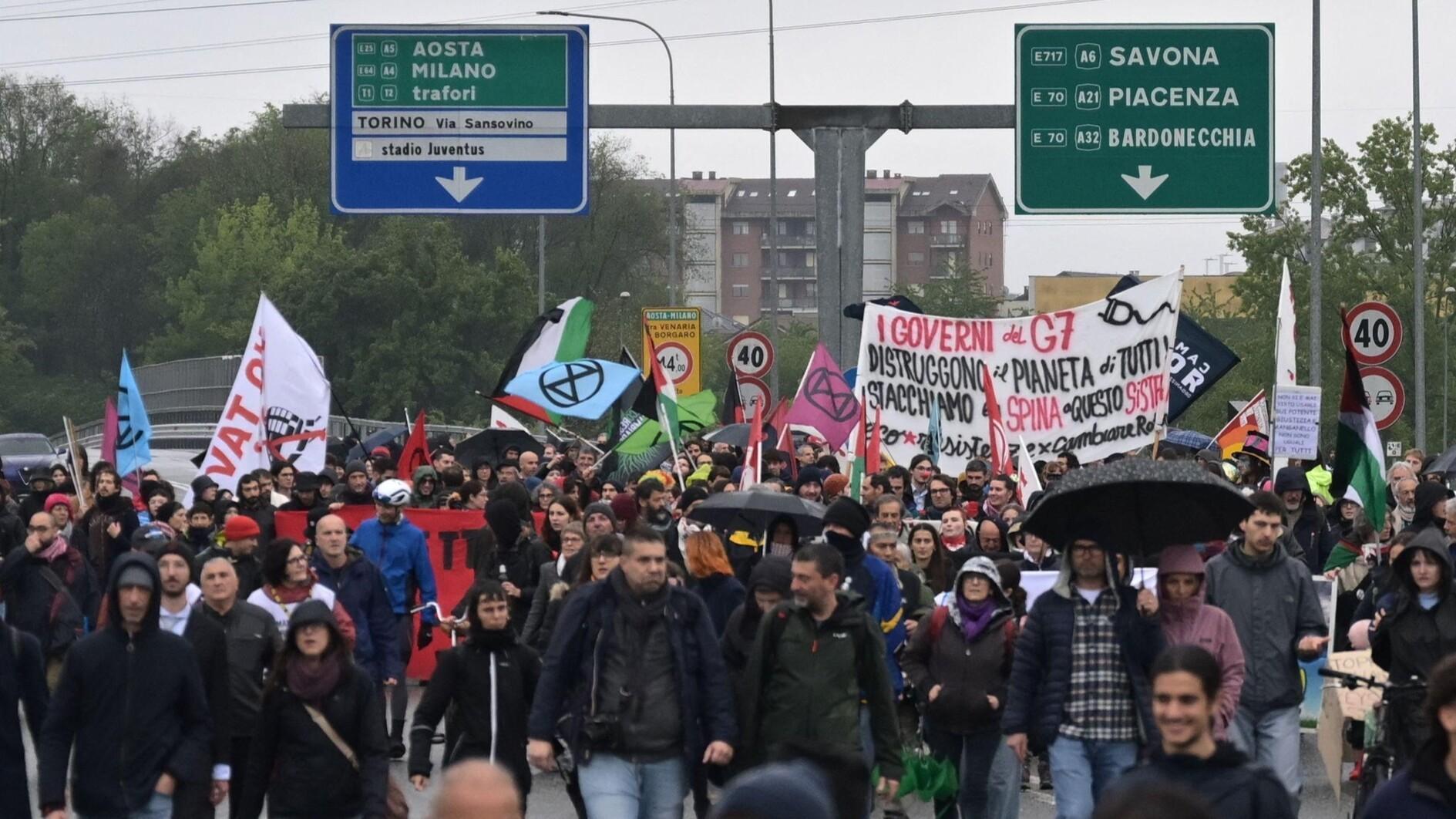China protesters wary after chemical plant victory
NINGBO - Agence France-Presse

Chinese residents gather outside the city government offices in Ningbo, in eastern China's Zhejiang province on October 29, 2012 after thousands of locals clashed with police during a protest at the construction of a chemical plant. AFP photo
Protesters who forced a Chinese city to halt work on a new chemical plant massed outside government offices Monday in a wary response to a victory which highlighted the country's growing environmental activism.Authorities in Ningbo city said Sunday that work on the 55.9-billion-yuan ($8.9 billion) oil refining and petrochemical complex would stop after thousands of local residents clashed with police in a week-long protest.
The demonstrations and apparent victory of local residents are the latest example of unrest stemming from public anger over pollution created by decades of rapid development.
But despite the government promise to halt the new plant of Chinese energy giant Sinopec, some Ningbo residents Monday stressed they had no faith in public officials and the city might try to revive the project.
"The government's resolution (to halt the factory) is the initial victory we achieved, but the government lacks the public's trust so this decision cannot be believed," a protester told AFP by telephone, asking not to be named.
He added up to 200 people gathered outside Ningbo city government offices on Monday morning, smaller than on Sunday when they numbered in their thousands.
"The situation was relatively stable (Monday)," he said.
Police later sought to disperse them even though the gathering was peaceful, according to an AFP journalist who was briefly detained by police. Protesters had left by late afternoon.
Protests were also reported in Zhenhai, the proposed site for the factory, despite a heightened security presence.
"Unfortunately, it is perhaps just a stalling tactic... the government felt pressure and was eager to wind this matter up, so there's no victory for us," said Ningbo resident Sha Shi Di Sao Zi on a microblog.
The rallies came ahead of a once-in-a-decade Communist Party congress starting November 8 at which new leaders will be selected. Ahead of the delicate handover, authorities are keen to present a show of harmony.
An editorial in the state-run China Daily newspaper Monday said a rising number of environmental-related protests showed the "obsession" of local officials with economic development had to be changed.
"Too many local governments are still preoccupied with gross domestic product," it said.
"Some local leaders still need to acquaint themselves with the notion that residents' rights to a healthy environment must be adequately respected." In July, thousands of people demonstrated over fears of pollution from a sewage pipeline at a Japanese-owned paper factory in eastern China, dispersing after local authorities pledged to cancel the project.
Earlier this year in the southwestern province of Sichuan, hundreds clashed with police over a planned metals plant in Shifang city. They also forced the project to be scrapped.
Ningbo's Zhenhai district said Sunday it would "ban" production of paraxylene (PX), a petrochemical used for plastic bottles which had been the focus of health fears.
The statement admitted for the first time that PX, which has been linked in some studies to a wide range of human health problems for those facing extended exposure, was going to be produced at the site.
"As the environmental awareness of the people has been rising, the number of similar cases recently and the scale of such incidents have rarely been seen in the past," the head of the Beijing-based Institute of Public and Environmental Affairs, Ma Jun, told AFP.
"But the current decision-making mechanism, which allows a few government officials, developers and experts to make the decisions, has not introduced public consultation," said Ma.
An editorial in another state-run newspaper, the Global Times, urged the government to set up a more transparent system for approving projects but said the fate of industrial plants should not be decided by protests.
"Some claim the people in Ningbo scored a victory," said the newspaper, known for its nationalistic stance.
"But we hold that when deciding a heavy chemical project through such protests, there is no winner, but the whole country loses."
















